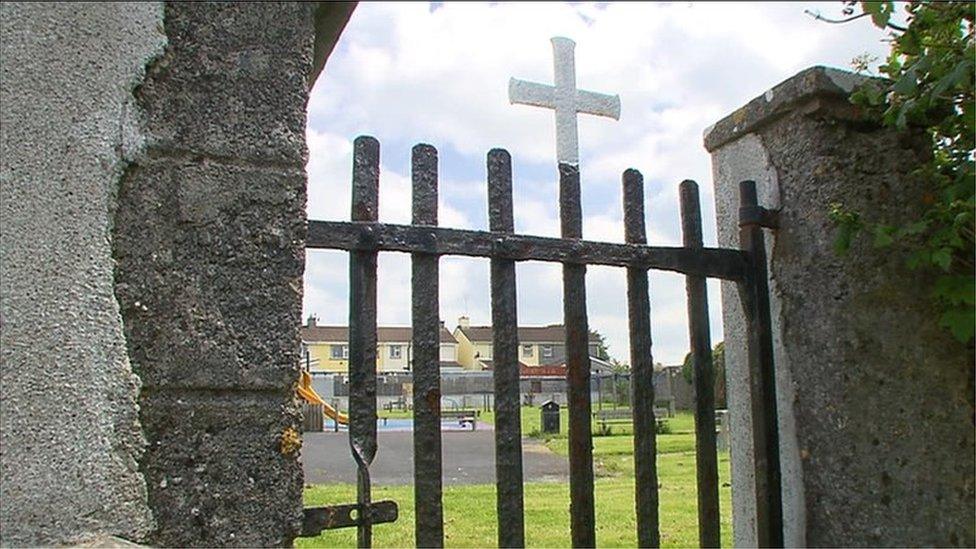'Tuam babies' historian Catherine Corless wins award
- Published
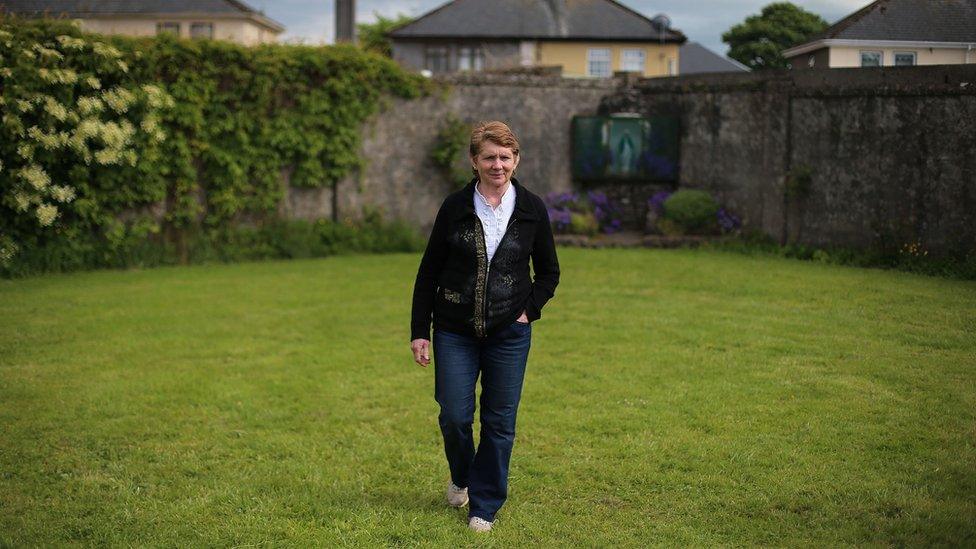
Catherine Corless, pictured at the site of the former Bon Secours home in Tuam in 2014
The amateur historian whose personal research helped uncover a mass grave at the former site of an Irish mother and baby home has won a human rights award.
Catherine Corless spent years trying to find out what happened to the remains of hundreds of children who died in the Catholic home in Tuam, County Galway.
Fears of a mass grave were raised after she found there were death certificates for 796 infants, but no burial records.
Last winter, "significant quantities of human remains" were found at the site.
The grim discovery was confirmed by a government-appointed inquiry in March, which ordered test excavations based on concerns raised by Ms Corless' research.
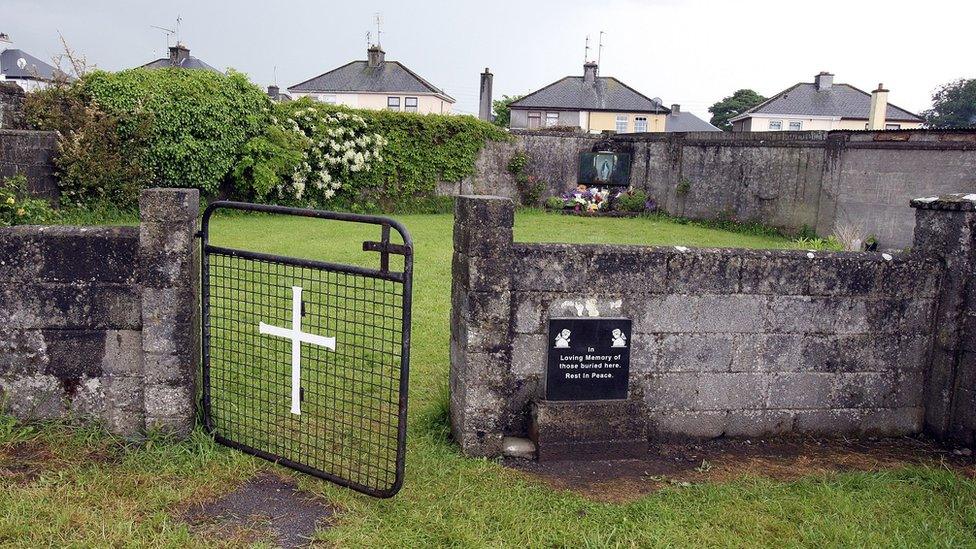
The home was demolished but a shrine was later erected on the site
It is thought that the children died of natural causes or malnutrition but the secretive, undignified manner of their burials caused widespread outrage.
'Tireless work'
On Thursday, a leading Irish legal organisation honoured the historian for her "tireless work" in helping to expose the long-held secret.
Ms Corless has been presented with the Bar of Ireland Human Rights Award at a ceremony in Dublin.
The award is given in recognition of "exceptional humanitarian service".
The chairman of the Council of The Bar of Ireland, barrister Paul McGarry, said: "Catherine Corless has shown incredible courage and determination in her advocacy work on behalf of the survivors of the Tuam Mothers and Babies Home.
"She has worked tirelessly on their behalf and has shone a light on a dark period of our history, passionately represented the victims and their rights at all times, often in the face of adversity.
"She epitomises the very essence of a humanitarian and is a very deserving recipient."
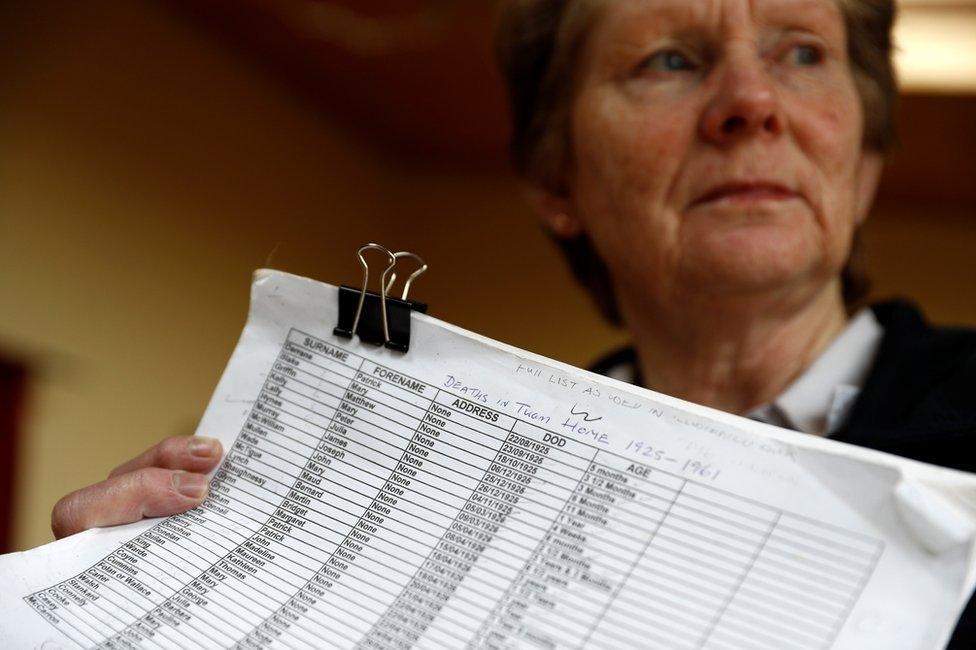
Catherine Corless collated hundreds of death certificates for the infants who died in the home
Ms Corless said she was "truly honoured" and accepted the award on behalf of herself and former residents.
"My work campaigning on behalf of the survivors of mother and baby homes continues and I hope that this special award will give even more survivors the strength to come forward to tell their story.
"With each and every testimony, the truth is uncovered further and our campaign for justice to prevail is strengthened.
"I share this award with the all survivors - this is for them," she added.
'Chamber of horrors'
The Mother and Baby Homes Commission of Investigation was set up in 2015, months after Ms Corless's research had made headlines around the world.
Excavations began in late 2016 and by March this year it was confirmed that human remains had been uncovered in 17 "underground chambers".
Tests confirmed that the bodies ranged in age from premature babies to children aged three.
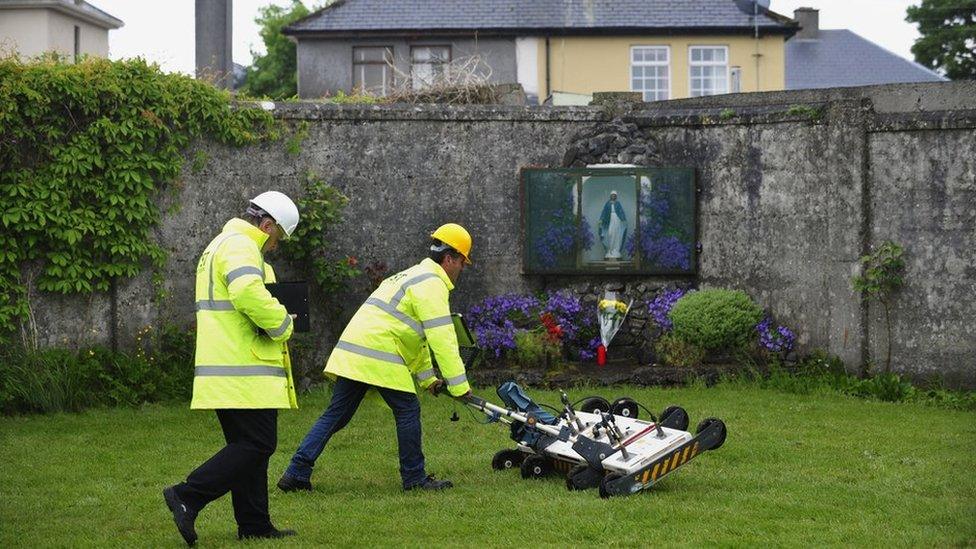
The land was excavated as part of a state-appointed inquiry into the missing graves
At the time, the then Taoiseach (Irish Prime Minister) Enda Kenny described the discovery as a "chamber of horrors".
Mr Kenny said the babies had been treated like "some kind of sub-species".
'Malnutrition'
The Tuam home for unmarried mothers was run by the Bon Secours order of nuns from 1925 to 1961.
A child died of illness or malnutrition at the home nearly every two weeks between the mid-1920s and 1960s.
The building has since been demolished and, in the 1970s, a housing estate was built on the land.
Radiocarbon tests carried out on the human remains suggest that they date from the period the mother and baby home was operational.
Speaking to BBC Radio Ulster after the test results were confirmed in March, Ms Corless said: "Finally the truth has come out."
'Asking questions'
She explained that her findings were a chance discovery, made while she was writing a history of the Catholic-run home in Tuam.
"It was during my research that I came across the graveyard, and that's what really started me asking questions," she said.
"I never knew there was a graveyard there. There was no headstone, no crucifix, it wasn't marked on the local map and I just started asking questions."
Ms Corless is the second recipient of the Bar of Ireland Human Rights Award.
Last year, the inaugural honour was given to the Irish Naval Service for its role in rescuing migrants from the Mediterranean Sea.
- Published4 March 2017
